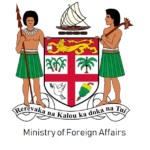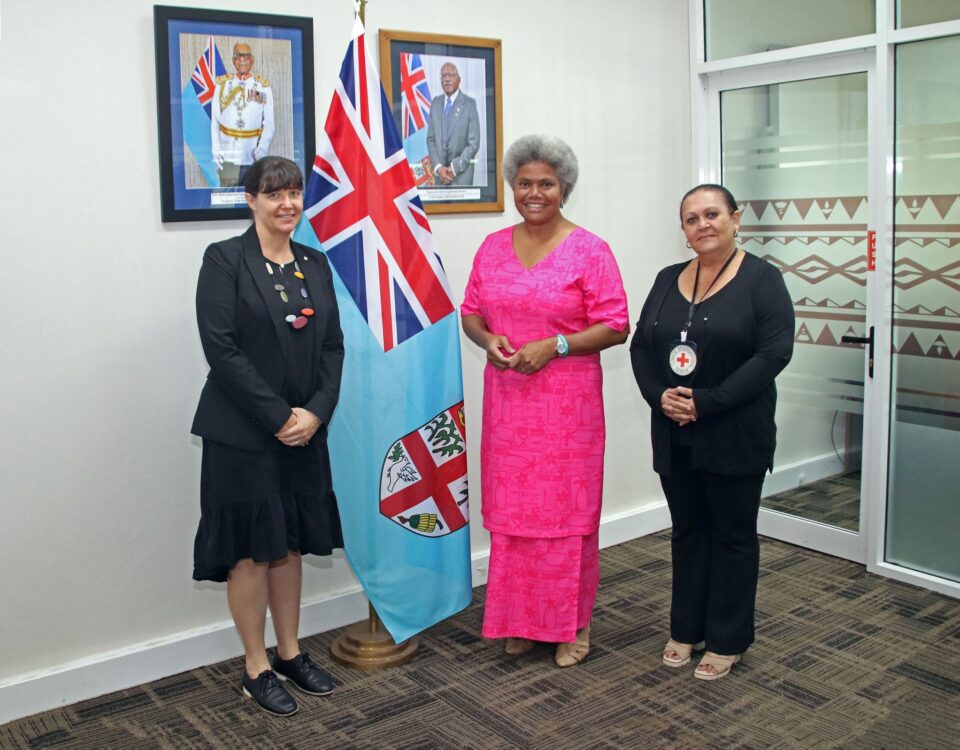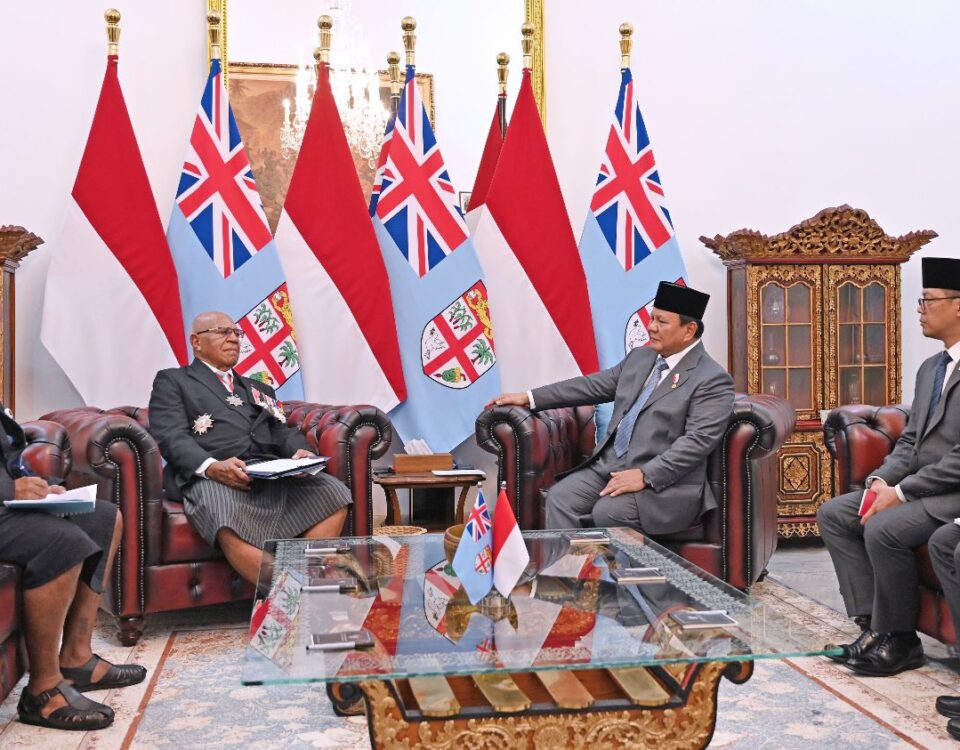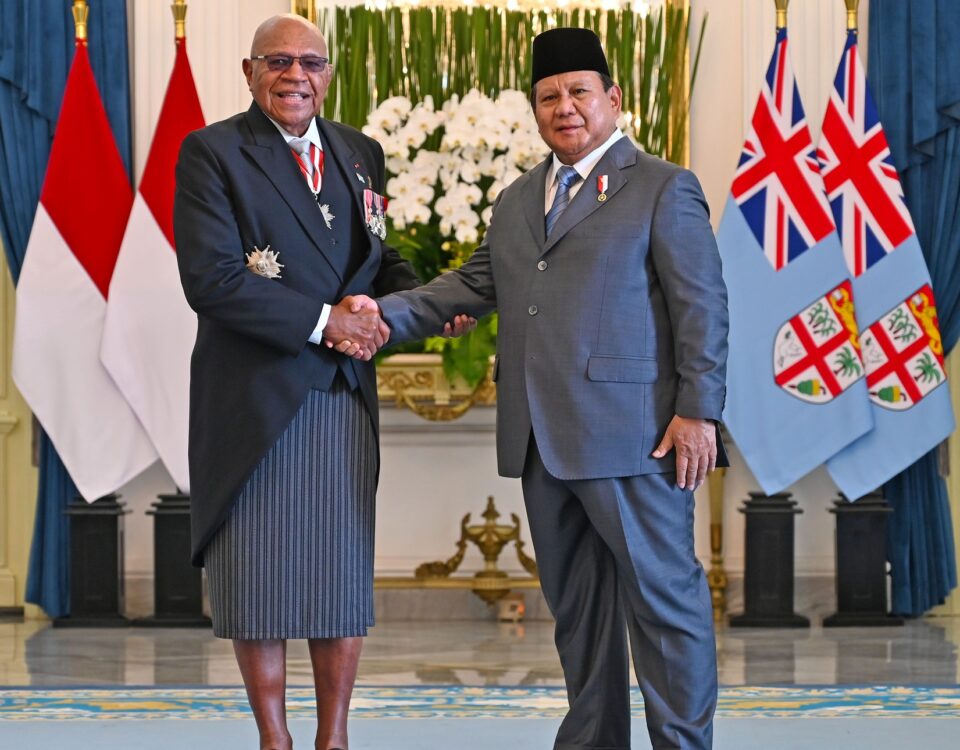
Prime Minister Conveys Congratulatory Message for Korea’s National Foundation Day
03/10/2021
PM Bainimarama remarks at the Climate Reality Blue Pacific Event
07/10/2021Published On: 07/10/2021
How can countries work together to maintain the 1.5C° objective within reach?
What would constitute an ambitious outcome on adaptation at COP 26?
How can COP 26 enable the continued mobilisation and scaling up of international climate finance for the successful implementation of the Paris Agreement goals?
Ambassador Vanheukelen;
Executive Vice-President Timmermans;
My fellow Pacific Leaders;
Ladies & Gentleman
Bula vinaka.
We have a three-pronged mission before us in Glasgow — serious emissions cuts worldwide to limit temperature rise and restore the health of the global ocean; adaptation to the effects of climate change that we are already experiencing; and financing for those most vulnerable to the effects of climate change.
Chief among the Pacific’s objectives is to keep the 1.5 target alive by securing immediate, large-scale emissions cuts by 2030. These cuts must put large nations on a path towards net-zero emissions before 2050.
That goal would be impossible only to those who lack faith in human potential. Failure is only assured if we never try, if we shrink from our responsibility to each other and to coming generations. But success is guaranteed if governments, businesses, and ordinary people summon the courage to seize the future we want for ourselves by making strong commitments and acting upon them.
Fiji is not only asking for ambition, we are acting on it. Our recently-passed Climate Change Act commits us to achieve net-zero emissions by mid-century. It mandates the 100 percent sustainable management of our ocean by 2030, with 30 percent as marine protected areas. It calls for resilience through nature-based solutions. It requires the private sector to disclose information on climate change risks and establishes national carbon budgets.
We know what should be obvious to anyone. COP26 must be the place for the finalization of the outstanding elements of the Paris Rulebook. Coal does not belong in this century, and other fossil fuels should be phased out as quickly as possible. Just as important, the private sector should be brought fully onboard so they can do what they do best: innovate, invest, and adopt carbon-neutral technology.
The consequences of inaction are unthinkable. The loss of entire islands, as well as vast stretches of coastline from Lagos to Venice to Miami to the coastal belt of Bangladesh. Mass climate-driven migration. Wildfire seasons in arid regions that incinerate homes, farms and ecosystems. And an unimaginable loss of biodiversity. The list of horrors goes on.
For our sake –– and all of humanity’s –– SIDS will wield the full measure of our moral authority against major emitters who refuse to arrive in Glasgow with strong commitments. Our case will be made on the basis of moral principles and global security, but also through the lens of opportunity. That is what net-zero represents: the opportunity to change the trajectory of this century for the nations bold enough to seize it.
Fiji and our Pacific Island neighbours are embracing the goal of region-wide green and blue economies to create a sustainable future in the midst of a healthy Blue Pacific. With the right ambition –– and corresponding actions –– the same ocean that threatens to swallow low-lying islands can become our most sustainable source of prosperity. The ocean-climate nexus should be as clear to anyone as it is to us. In fact, it is more than a nexus; it is an unbreakable bond. We are becoming a part of that bond by investing in sustainable “blue” economies that create generational benefit to our people.
Fiji is proud to be one of the first countries to develop a National Adaptation Plan, and one of the few countries to incorporate its National Adaptation Plan into its 2020 updated Nationally Determined Contributions (NDCs). We have learned the painful lesson that paying to adapt now is far cheaper than rebuilding from climate-driven destruction. But we need access to affordable finance to do so.
I am not only talking about the amount of financing that must be made available. That would be easy. Anyone can write a cheque. The hard work ahead is to develop financing that is fast, flexible and concessionary. It is hard work because it requires a complete rethinking of the system of development finance that we have relied on for more than 70 years. It is a system that does not serve us today and certainly will be less useful to us 20 years from now.
Right now, SIDS, like Fiji, pay punishing “island interest rates” to borrow to build resilience while larger economies can print trillions at zero interest.
To build a truly resilient Fiji, we need access to fast-deploying targeted grants, long-term concessionary financing, and financial tools and instruments established through public-private collaboration and partnership. The developed nations must deliver on the 100 billion dollars promised in climate finance. with a new floor of 750 billion dollars beyond 2025.
Right now, Small Island Developing States are only able to access a mere two percent of the climate finance currently available. And with that, we are expected to protect ourselves from an existential crisis we did not cause. It is not just an unjust expectation, it is an impossible expectation. Our share of climate finance must be increased to at least 10 percent of the total funds to protect against future impacts, and a clear commitment must be locked in with regards to loss and damage to address the damage already done.
The Paris Agreement is not simply a litany of good intentions that nations can wave in front of their people. If we do not act forcefully, it will not be a statement of hope. It will become our epitaph. It has to come alive through actions that transform the world economy. The 1.5-degree threshold is the only target that guarantees the existence of low-lying Pacific nations. The consequences of falling short are inconceivable. Who among us would want to face them?
Vinaka vakalevu – Thank you.





